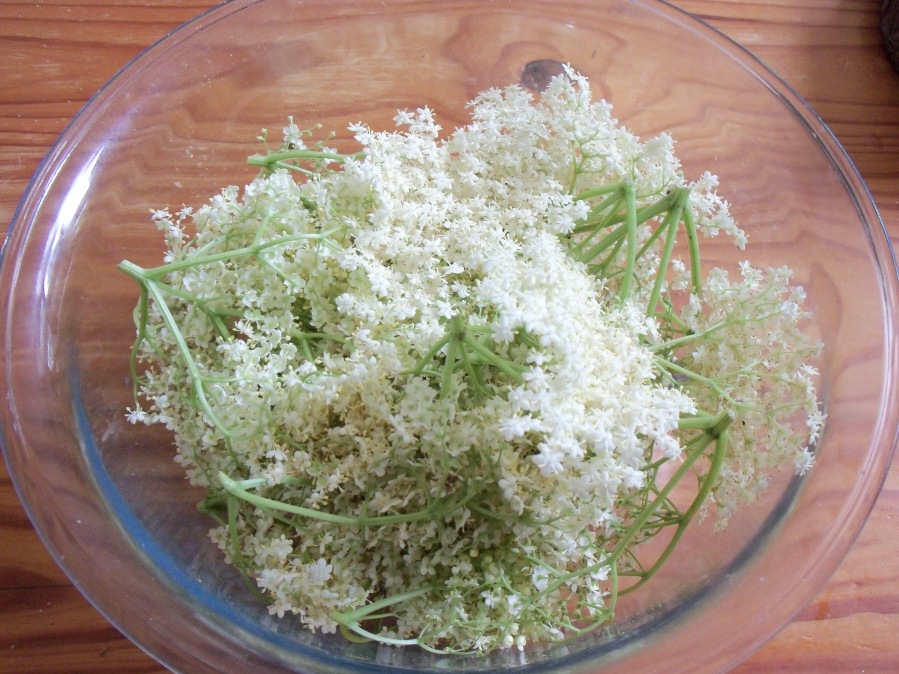By Teresa Bassett
Working from home as a writer, I’m well aware I’m one of the lucky ones under lockdown. I’m used to being on my own (if you don’t count the imaginary people I write about!) and, in theory, I should be able to Get On With Things. With so much going on in the world, though, I do find I’m easily distracted from my work in progress. Like most of us, I’m wondering where the future will take us, not only personally, but as a species, in a world of different species. Time to rethink. Time for a better normality?
I’m enjoying how much closer I feel to nature, and I speak as someone who already loves nature and wildlife. Here in Cornwall at the moment, there are many wonderful distractions. Our elder trees, in particular, are festooned with fragrant creamy heads. So, yesterday, before buckling down to editing the sequel to my time travel adventure The Time Crystals I decided I just had to make Elderflower cordial, from my favourite recipe, which worked so well last year.

I like things to be easy, and this delicious drink couldn’t be more straightforward to make. As an activity, it also conforms to social distancing!
Ingredients
25 elderflower heads
1 kg sugar
2 or 3 sliced lemons and/or oranges
1 tablespoon citric acid (if you don’t have this to hand, you can use lemon juice instead, adding about 4 tablespoons)
1 ½ litres of water
Method
The method couldn’t be simpler.
Firstly, snip off your elderflower heads and shake out any little critters into the hedge. (I don’t wash my elderflowers because it can take away some of the fragrance, but it’s best not to pick them from a busy roadside, because of traffic fumes.)

Back indoors, place the blossoms in a bowl with the citric acid. Meanwhile, heat your kilo of sugar in a large pan with the water and sliced lemons/oranges. Bring it just to boiling point, stirring to dissolve the sugar.

Pour the hot water mixture over the elderflowers and citric acid. Give it a good stir.

Steep, covered, overnight (up to 24 hours), then strain into bottles. It makes around two litres altogether.
And that’s it! Use as you would squash, diluting with water (or sparkling water.) Add some ice and enjoy a refreshing summer drink.
Intriguing facts about the Elder Tree (Sambucus nigra)
The elder has a long and distinguished history, dating back to Neolithic times. It has been used for all kinds of purposes, from musical instruments, to medicine, to magic. In medicine it’s used for hay fever and warding off colds, among many other things.
According to folklore, the elder tree is sacred, home to Hylde Moer, the Elder Mother. It’s always wise to ask her permission before harvesting her gifts of flowers or berries!
An elder tree growing near your home is said to be a good omen, and to have a protective influence. This is welcome news, as we have a little family of them in the garden!

What a fascinating recipe for a delicious sounding drink, Teresa!
LikeLike
Thank you! If you try it, I hope you enjoy it 🙂
LikeLike
I’ve been making elderflower cordial for the last few years. I think I’ve perfected my recipe now. It’s very similar to yours though. I gradually used less and less citric acid and lemon because I thought they overpowered the delicate elder blossom flavour. I steep it for 48 hours. I also bring it back up to the boil just before bottling it into sterilised bottles, and it keeps well for up to two years.
Anyway, imagine my surprise when this friend of mine from Bath University turns out to be a published author! (I’m Hans by the way, greetings from the Netherlands).
LikeLiked by 1 person
Oh wow, what a lovely surprise to hear from you! I hope you are well – we must catch up properly. Next year I will try your elderflower recipe, as I’d like to bring the elderflower flavour out more and be able to store if for longer. Greetings from a very rainy Cornwall!
LikeLike
[…] cordial, something I look forward to every year. You can find my tasty, quick and easy recipe here. Be sure to get your identification right, of course! Happy […]
LikeLike